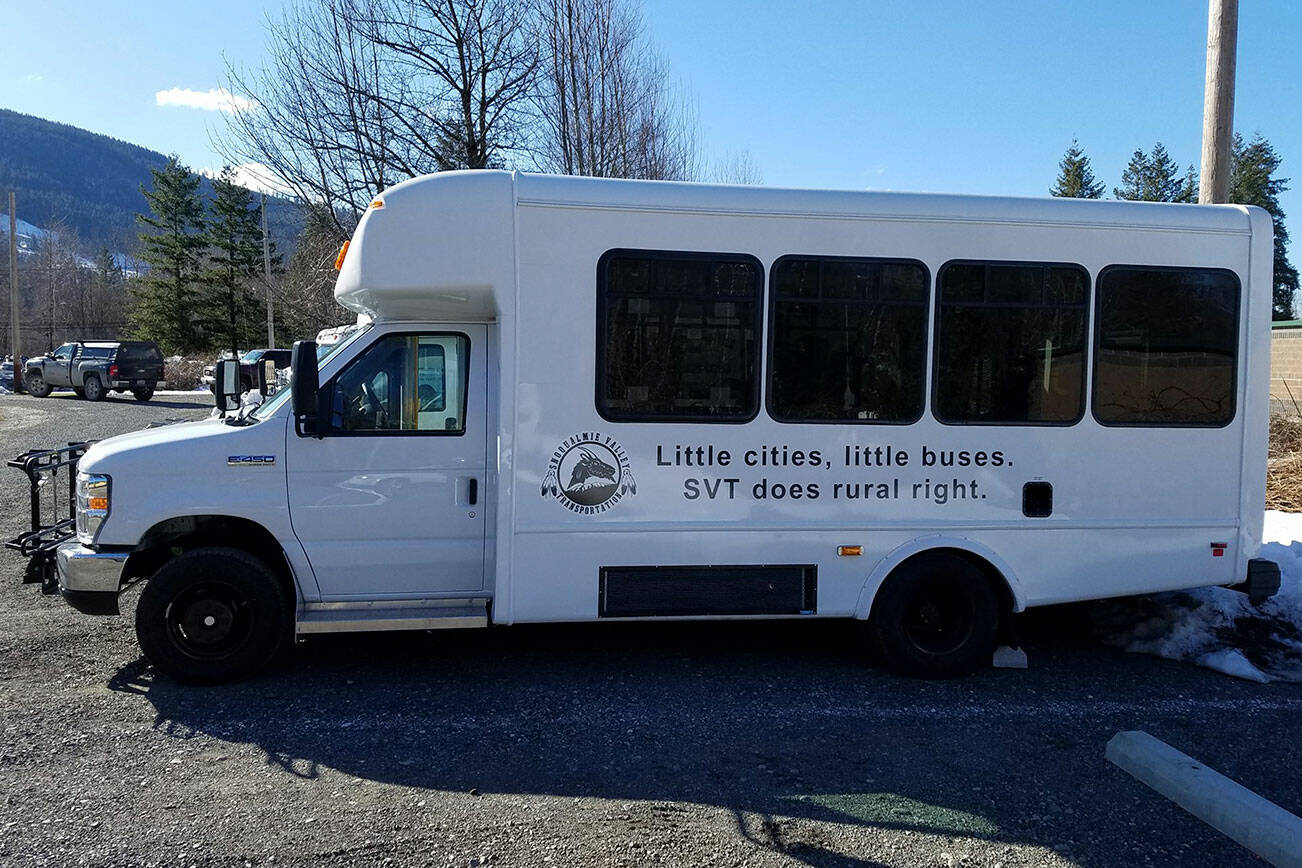Snoqualmie Valley Transportation has received a grant from the State Department of Transportation to add weekend service to the Valley Shuttle for the first time.
Amy Biggs, executive director of SVT, applied for the funds last year, noting it “creates a massive potential for good,” as weekend public transit in the Valley is nearly nonexistent.
Yet, the funding’s success depends on whether SVT can hire more drivers. Since the pandemic, the bus company has struggled to hire and has been forced to temporarily suspend several routes.
SVT needs to hire a total of 16 more employees. Five drivers are needed to return to pre-pandemic levels, while seven employees — including five drivers, a dispatcher and a call taker — are needed for weekend routes.
Until more staff are hired, the Duvall-Monroe Shuttle, Cedar Falls Loop and even a couple of afternoon runs of the Valley Shuttle have all been suspended. The Valley Shuttle, SVT’s signature route, is a weekday fixed-route bus service that runs along the spine of the Valley, connecting its four cities to each other and the larger county bus system.
“It’s a great job,” Biggs said of driving for SVT. “But we need more funding to be competitive with local jobs. We can’t get people for the nonprofit funding we have.”
SVT, a nonprofit project of the Mt. Si Senior Center, serves as the Valley’s primary public transportation agency, providing both fixed-route and door-to-door service. The nonprofit is currently underfunded and improvements hinge on improving salaries for its drivers, Biggs said.
Drivers for SVT currently start around $19-$20 an hour. For comparison, King County Metro advertises jobs starting at $26 an hour.
As the Valley’s housing costs have soared, making it near impossible for SVT’s drivers to live nearby, SVT’s pool of applicants has declined, Biggs said. It has been further reduced, Biggs notes, by requirements that drivers have clean driving and criminal records and pass a drug test, including for marijuana.
“And oh by the way, they need to have some second source of income because you’re not going to be able to afford to live on what we’re paying them,” she said. “That’s crazy.”
There are also few applicants applying from outside the Valley. In her more than a decade at SVT, Biggs said only three workers weren’t local — and even then those employees had lived in the area when they were hired.
“People living in Renton or Federal Way or Maple Valley, Enumclaw, Covington, Kent don’t say ‘hey there’s a job in North Bend,’” Biggs said. “Affordable housing is really an issue for us and our staff.”
SVT is funded in part by King County Metro’s Community Access Transportation (CAT) Program, a division allowing agencies to create their own transportation services. Biggs said she has request help from Metro, which has agreed to expand both weekday and weekend service on the Valley Shuttle, but noted the CAT program has had its budget cut since 2018.
Jeff Switzer, a Metro spokesperson, said workforce availability continues to be a challenge across the transit industry, but said Metro remains a strong parter with SVT and is reviewing requests for more funding.
“We are currently reviewing a request from SVT for additional funding to help attract qualified workers to provide transit shuttle service,” he said. “Metro remains committed to partnering with SVT to find solutions in this challenging labor market.”
Biggs said drivers who work for them often end up staying a long time and have high satisfaction rates. She said insufficient housing and pay are barriers to hiring.
“They love this job. They love the riders. The riders love them,” she said. “It tears my heart to hear them say ‘I can’t work here because a company that installs blinds offered me $28 an hour and I have kids to support.”
The widescale impact of the route suspensions is hard to nail down, but ridership has dropped, Biggs said. Prior to the pandemic, SVT was on pace to deliver over 55,000 rides in a year. Last year, the agency gave out 35,000.
Kelly Coughlin, the CEO of the SnoValley Chamber, said the shortages haven’t yet had a widespread impact on local businesses, but she said that could change.
Most of the Valley’s workforce isn’t local, Coughlin said. They commute in from South King County over State Route 18. But, as the Valley heads into peak tourism season and many youth who can’t drive start summer jobs, there could be impacts to businesses, she said.
SVT is still serving riders across the Valley in areas without bus stops, but in a different capacity. Riders are now calling SVT ahead of time and booking on-demand service rides. It gets riders to their destination, but it’s limiting compared to a traditional hop-on bus service, Biggs said.
“It’s not just like being able to pick up wherever you want to and walk on a bus,” she said. “That’s freedom.”


